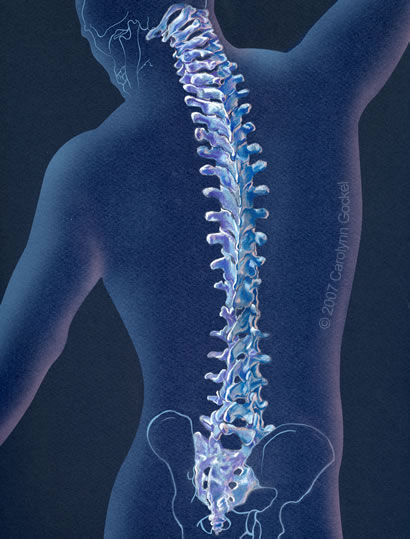 What is Chiropractic?
What is Chiropractic?
According to the Association of Chiropractic Colleges, "Chiropractic is a health care discipline which emphasizes the inherent recuperative power of the body to heal itself without the use of drugs and surgery. The practice of chiropractic focuses on the relationship between structure (primarily the spine) and function (as coordinated by the nervous system) and how that relationship affects the preservation and restoration of health.” In addition, chiropractors take a holistic approach to health and wellness by identifying and correcting the cause of a patient’s ailment, rather than treating the symptoms.
How Does Chiropractic Work?
At the heart of chiropractic is the understanding of the spine and nervous system. The spinal column encases the nervous system (spinal cord and nerve roots) and is responsible for its protection. When the spinal column loses its proper motion, alignment and/or functional ability, it can lead not only to back pain and dysfunction but can put additional stress on the nervous system.
In short, because the body's healing ability is governed by the nervous system, correcting spinal abnormalities which irritate the nervous system can lead to a number of favorable results.
Using a number of unique and highly refined skills, chiropractors checks the patient's spine for any misalignments, fixations or other abnormalities (vertebral subluxations). If detected, chiropractors use manual (hands-on) techniques to restore proper alignment and function to the spinal column and other related joints of the body. This is called a ‘chiropractic adjustment’.
What is an Adjustment?
The adjustment is a safe, natural, non-invasive procedure used by the chiropractor to restore and improve health. Learning the art of adjusting is a skill that requires years of study and practice. Chiropractors are the only health care professionals trained to deliver the chiropractic adjustment.
In basic terms, the spinal adjustment or spinal manipulation refers to the process in which the doctor of chiropractic skillfully applies controlled force into one or more vertebrae of the spine and/or pelvis. Sometimes, the adjustment can be delivered through the use of a specialized mechanical tool.
Chiropractors use many specialized techniques to treat these spinal and mechanical abnormalities to optimize overall health. In addition to spinal adjustive techniques, soft tissue therapy such as massage, dietary and nutritional counseling, physical therapies, and lifestyle modification programs are commonly employed.
The ‘cracking’ sound sometimes heard during an adjustment is merely the gas within the joint capsule being released – very similar to opening a can of pop. There is no pain involved and is not a ‘cracking’ of bones, as is often misunderstood. In fact, most patients report an immediate feeling of relief or relaxation after an adjustment.
Is Chiropractic Safe?
Chiropractic is widely recognized as one of the safest, drug-free, non-invasive therapies available for the treatment of headaches, neck and back pain. Recent reports have stated that the level of risk for chiropractic treatment is smaller than that associated with many commonly used diagnostic tests or prescription drugs. A New Zealand government study found that adjustments are "remarkably safe."
By avoiding drugs and risky surgery, chiropractic care enjoys an excellent track record. A thorough exam can identify the rare person for whom chiropractic care might be unsuited. Compare the statistics. Adjustments are about 100 times safer that taking an over-the-counter pain reliever.
Visit a chiropractor to learn more about your body and its amazing ability to heal itself and see how chiropractic care can move you towards optimal health and vitality!
Do I Have A Pinched Nerve?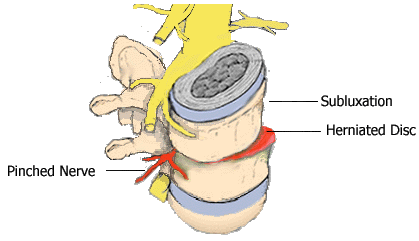
A pinched nerve is rare. It is more likely that an adjacent spinal bone irritates, stretches, rubs or chafes the nerve. These subluxations distort the nerve messages sent between the brain and the body. This can produce unhealthy alternations to the organs and tissues connected by the affected nerves.
How Do You Get Subluxations?
There are three basic causes of subluxations. Physical causes could include slips and falls, accidents, repetitive motions and improper lifting. Emotions such as fear can cause subluxations. Chemical causes could include alcohol, drugs, pollution and poor diet.
How Do I Know If I Have A Subluxation?
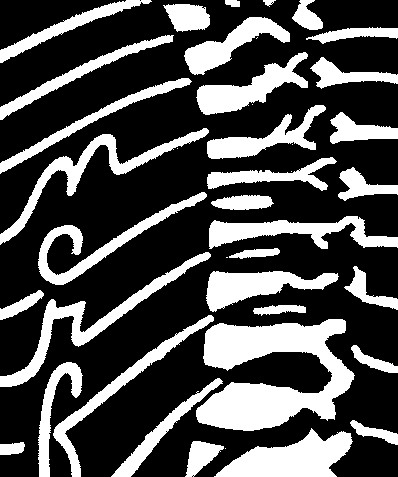 You can have subluxations and not know it. Like the early stages of tooth decay or cancer, subluxations can be present before warning signs appear. The results of a thorough examination can show the location and severity of subluxations you may have.
You can have subluxations and not know it. Like the early stages of tooth decay or cancer, subluxations can be present before warning signs appear. The results of a thorough examination can show the location and severity of subluxations you may have.
Can Subluxations Clear Up On Their Own?
Sometimes. Today's hectic lifestyles are a constant source of subluxations. Fortunately, our bodies have the ability to self-correct many of these problems as we bend and stretch, or when we sleep at night. When subluxations don't resolve, you need to see a chiropractic doctor!
Can The Bones Move Too Much?
Highly unlikely. A chiropractic adjustment is special. It has the right amount of energy, delivered to an exact spot, at a precise angle, at just the right time. The intent is to get a "stuck" spinal joint moving again, helping reduce nerve interference. Years of training, practice and experience make chiropractic adjustments specific and safe.
Will Adjustments Make My Spine Too Loose?
No. Only the spinal joints that are "locked up" receive adjustments. This allows weakened muscles and ligaments to stabilize and heal.
What Makes The Sound During The Adjustment?
Lubricating fluids separate the bones of each spinal joint. The ‘cracking’ sound sometimes heard during an adjustment is merely the gas within the joint capsule being released – very similar to opening a can of pop. There is no pain involved and is not a ‘cracking’ of bones, as is often misunderstood. In fact, most patients report an immediate feeling of relief or relaxation after an adjustment.
Are All Patients Adjusted The Same Way?
No. Each patient's spine and care plan is unique. With 24 moving bones in the spine, each of which can move in seven different directions, we see a wide variety of spinal patterns. Each patient's care is custom-tailored for their age, condition and health goals.
How Many Adjustments Will I Need?
The number of adjustments varies with each patient and their individual health goals. Many patients sense progress within a week or two of frequent visits. Visits become less often as your spine stabilizes. In chronic cases, complete healing can take months or even years.
Can I Adjust Myself?
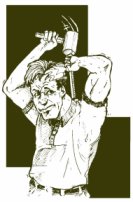 No. Some people can make their joints "pop," but that's not an adjustment! Worse, damage can occur by mobilizing a joint with weakened muscles and ligaments. Adjustments are specific and take years to master. Even your chiropractic doctor must consult a colleague to benefit from chiropractic care
No. Some people can make their joints "pop," but that's not an adjustment! Worse, damage can occur by mobilizing a joint with weakened muscles and ligaments. Adjustments are specific and take years to master. Even your chiropractic doctor must consult a colleague to benefit from chiropractic care
Why Do Newborns Get Adjustments?
Even today's "natural" childbirth methods can affect an infant's spine. Preliminary studies suggested that colic, unusual crying, poor appetite, ear infections or erratic sleeping habits can be signs os spinal distress. Pediatric adjustments are gentle. Knowing exactly where to adjust, the doctor applies no more pressure than you'd use to test the ripeness of a tomato.
Can I Have Chiropractic Care After Back Surgery?
Yes. Rest assured that your chiropractic doctor will avoid the surgically modified areas of your spine. Surgery often causes instability above or below the involved level. These areas will be the focus of your chiropractic care.
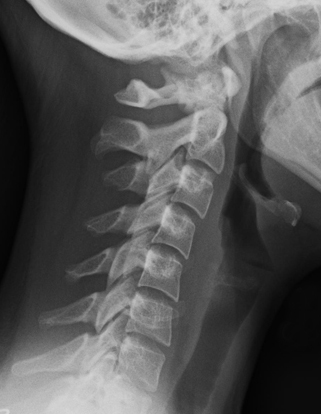 Can Patients With Osteoporosis Get Chiropractic Care?
Can Patients With Osteoporosis Get Chiropractic Care?
Of course. When developing a care plan, your chiropractic doctor considers the unique circumstances of each patient. There are many ways to adjust the spine. The method selected will be best suited to your age, size and condition.
How Long Until I'll Feel Better?
Some patients experience almost instant relief. Others discover it can take many weeks or months. Many factors can affect the healing process. How long have you had your problem? Are you keeping your appointments? Are you getting the proper rest, exercise and nutrition? Do you smoke? Are you in otherwise good condition? Within a short period of time, most patients sense enough progress to fully carry out their doctor's recommendations.
How Long Will I Need Chiropractic Care?
After patients get the relief they want, many choose to continue with some type of periodic care. These patients show up for their visits feeling great. These visits can help support the final stages of healing and help detect and resolve new problems before they become serious. Our job is to offer the very best care and your job is to decide how much of it you want.
Will I Receive Any Medication For My Pain?
No. Chiropractic doctors don't dispense drugs. Because we rely on natural methods, we can show you how to use ice to control painful symptoms. When properly applied, ice can have an analgesic effect without the side effects of pain medications.
Why Don't Medical Practitioners And Chiropractic Doctors Get Along?
That's changing. Years of prejudice and bias are giving way to research showing the benefits of chiropractic care. Attitudes are slow to change. However, as the public demands alternatives to drugs and surgery, more and more medical practitioners are referring their patients to our office.
What If My Insurance Doesn't Cover Chiropractic?
 Your health affects everything you do and everyone you know. It is your most valuable possession. Yet, each of us is free to place a different value on our health. It's convenient when an insurance company or third party helps pay the bill. But be careful! Don't allow the profit motive of a huge corporation to make the decision for you. Find out how we make chiropractic care affordable for just about anyone.
Your health affects everything you do and everyone you know. It is your most valuable possession. Yet, each of us is free to place a different value on our health. It's convenient when an insurance company or third party helps pay the bill. But be careful! Don't allow the profit motive of a huge corporation to make the decision for you. Find out how we make chiropractic care affordable for just about anyone.
Will I Ever Be Normal again?
Patient results vary. Many report improved spinal curves and the total resumption of their normal lifestyle. Those who neglected or delayed seeking care often see slower progress. After improvement, many patients discover that periodic chiropractic checkups can help avoid a relapse.
What If Chiropractic Doesn't Work?
If we're unable to find and correct the cause of your particular health problem, we will refer you to other specialists who may be able to help. Your health is our primary goal.